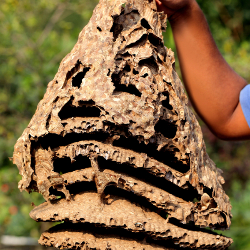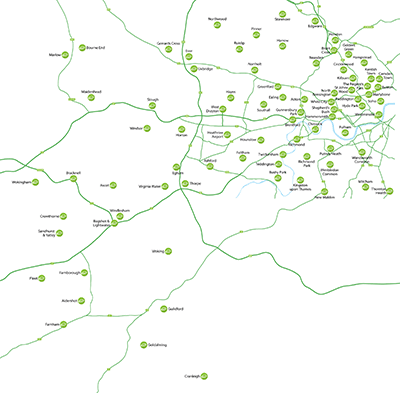West London Pest Control - Wasp Nest Removal & Bee Removal Services in West London
If there are two flying insects that strike fear in to many people, it is wasps and bees.
Yellow and black stripes are a sign in the animal kingdom of danger, telling every other insects, animals and humans that they have, quite literally, a sting in their tail.
Anyone who is stung will receive an itchy, red, localised swelling; in other words, the site of the sting on the skin will hurt. It will become a red and raised lump and the sting will need to be removed to prevent the spread of venom in the bloodstream. It can be incredibly painful and unpleasant; depending on the reaction, you may need to seek medical help.
However, for a smaller group of people, a wasp or bee sting can be fatal – and, you may not know you are allergic to wasp or bee stings until it is too late.
For this very reason, if you suspect you have a wasp or bee nest in, near or around your home, do NOT attempt to deal with it yourself. As a professional pest control company, we not only have all the skills but all the right protective equipment too.



Bees…
… are perhaps not as hated as wasps, simply because people feel they have a purpose. Not all bees crate honey however, but they do perform a vital task in terms of cross-pollination of plants and flowers. Not as aggressive as wasp, bees tend to keep themselves to themselves.
They tend to encroach on our territory by accident, attracted there by various factors such as a local food supply, as well as sanctuary in a place protected from the weather etc.
Bees are not protected but are valued in the local eco-system and some types of bees can be re-located.
Wasps…
… are never welcome anywhere. Aggressive in some situation, calling on their friends to join in on a defensive attack too, sharing any part of your property – inside or out – is not a welcome prospect for anyone.
The nest needs to be exterminated with a high grade, professional insecticide that is not available to buy over the counter. Although wasps have a finite lifespan – in most cases, from spring to autumn – spending your summer dodging angry wasps is not ideal.
In some cases, the empty nest can removed in winter but again, you need to be truly confident there are no wasps left.



Aggressive
Agitating a wasp is never a good idea but, when wasps are near their nest, they can be even more alert to perceived threats. Without a queen, the nest will die thus, the soldier wasps will protect their nest at all cost.
Simply walking past it, detecting a lot of noise, or the nest being vibrated are all signals to the soldier wasps that the nest – and their beloved queen – could be under attack. A lone wasp may emerge but, it will release a chemical, detectable by the other soldier wasps, leading to attack which can be at best, very painful and at worst, fatal for some people.
Not all wasps nest in colonies either; some are lone wasps, making their nest in the garden and other wasps also nest naturally within the trees, shrubs and the earth. Only aggressive if their nest is actually disturbed, we can often live with these nests for a few months.
Dealing with a wasp or bee nest
Wasps and bees are not insects that anyone should attempt to deal with, without the necessary protective equipment and the right knowledge.
Their nests, contrary to popular belief, can be removed at any time of year and whenever we receive a call regarding a potential bee or wasp nest near or in a property, we will always prioritise the call.
Treatment of wasp or bee nests is quick and effective, leaving your free from the nuisance of aggressive wasps or buzzing bees by the end of the day!
ALWAYS seek professional help – call us today for a free, no obligation quotation and be wasp or bee free in no time.







 for W areas
for W areas





